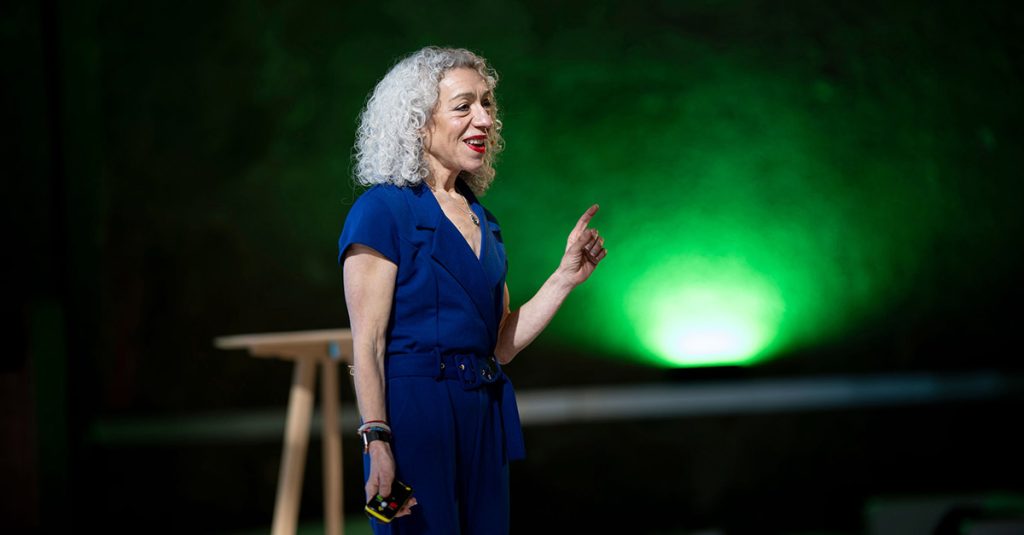Hybrid working is transforming how businesses operate in today’s world. It is redefining the balance between productivity and flexibility.
Blaire Palmer, a business consultant, provides captivating insights into the misconceptions surrounding hybrid working and the inherent need for workplace transformation.
Understanding Hybrid Working
The concept of hybrid working has been largely misconstrued by many businesses. As Blaire Palmer, a noted business consultant, elucidates, the focus should not solely be on achieving work-life balance. Rather, the primary question should be: how can employees perform at their best? Palmer’s insight challenges the prevailing assumptions surrounding flexible work arrangements.
Hybrid working requires differentiation between tasks that benefit from an office environment and those better suited to remote settings. Palmer highlights tasks necessitating deep thought do not gain from office presence, while collaborative tasks thrive in such settings. This nuanced understanding of work environments can redefine productivity and employee satisfaction.
Reformation over Revolution
Blaire Palmer proposes a reformation rather than a complete overhaul of current workplace systems. The pandemic has exacerbated the need for change, surfacing employee frustrations, and questioning the worth of their work sacrifices. Leaders must adapt to sustain engagement and retention by gradually implementing reforms that address employee needs.
The solution is not in autonomous work setups but in creating a sense of organisational citizenship among employees. This approach ensures that while employees enjoy a degree of autonomy, they remain aligned with the organisation’s goals. Palmer’s argument highlights that systemic change can occur incrementally without dismantling existing structures.
Company leaders are urged to focus on defining the work environment that nurtures talent, rather than succumbing to outdated models of leadership. This involves loosening traditional reins and trusting employees with more responsibilities, enabling a culture of mutual respect and cooperation.
Leadership and Decision Distribution
The role of a modern leader is evolving from directing operations to distributing decision-making power across the organisation. This shift requires leaders to trust their employees’ capabilities and support their growth by providing the tools necessary for effective decision-making.
Palmer emphasises that when employees feel like true stakeholders within their organisation, they are more motivated and engaged. This involvement fosters a dynamic workforce capable of adapting to challenges and contributing to the organisation’s success. Allowing employees input into core decisions can lead to more innovative and sustainable solutions.
Hybrid Working in Practice
To successfully implement hybrid working, companies must tailor their approaches to fit the varied needs of their employees. This involves establishing clear policies that accommodate individual work preferences while maintaining the organisation’s integrity and productivity.
Palmer suggests the importance of understanding the diverse forms of work conducted within an organisation. These insights help in crafting environments where employees can thrive, benefiting both the employee and the overall organisation. Hybrid working is not a one-size-fits-all solution but a tailored strategy that reflects the aspirations and needs of the workforce.
Ultimately, the shift to hybrid working models represents a cultural transformation that prioritizes flexibility, trust, and effective communication. Organisations willing to embrace these changes are likely to witness enhanced employee satisfaction and productivity.
Changing Organisational Culture
Palmer insists on the necessity of transforming organisational culture from the inside out. This transformation involves questioning established norms and encouraging a culture of inquisitiveness and innovation among employees.
A key takeaway is fostering an environment where employees are empowered to speak up and contribute ideas. This not only enhances the organisational culture but also leads to improved morale and employee retention.
Organisations should strive to build a workplace culture that values continuous learning and development. This culture is pivotal in maintaining a dynamic and adaptive workforce capable of meeting future challenges and sustaining organisational growth.
Concluding Thoughts on Hybrid Working
The future of work hinges on the ability of organisations to adapt and embrace change. As Palmer articulates, this involves a paradigm shift from traditional leadership models to more inclusive and supportive frameworks.
Organisations must adopt innovative practices that reflect the changing expectations of the modern workforce. This adaptability is crucial for long-term success and maintaining a competitive edge in the industry.
The dialogue on hybrid working is essential for modern business success. As organisations adjust, they must integrate flexibility with strategic insight.
By embracing change, businesses not only improve employee satisfaction but also ensure sustainable growth and innovation.

